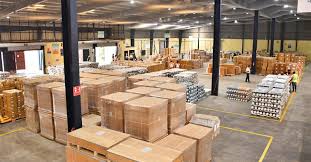As per Vaibhav Vohra, to be consistent with the health system’s goals, the pharmaceutical supply chain should offer medications in the correct quantity, of acceptable quality to the right place and customers at the right time and at the lowest possible cost, while also benefiting its investors.
The cold chain is the backbone for keeping pharmaceutical items fresh throughout transportation. Pharmaceutical companies continue to lose millions owing to spoilage caused by temperature variations, and they face an even greater threat if this degradation goes unnoticed, resulting in severe health hazards for patients as well as additional regulatory activities. This issue is becoming increasingly important, particularly in developing countries such as South America and Asia, where large temperature changes are common.
To guarantee flawless transitions for complete pharmaceutical product transportation, strong collaborations with other cold-chain participants are essential. To avoid any loss of efficacy, the logistics industry, including airlines, should ensure that there is no break in the cold chain during the transit of temperature-controlled pharmaceutical items from the manufacturer’s premise(s) to the destination.
Pharmaceutical export firms should be provided with volume-based incentives to increase pharma exports, thereby making the industry resilient, Atma Nirbhar, and future-ready.
The process of transporting items from the end customer to the source for proper disposal or value capture is known as “reverse logistics.” It entails picking up goods from clients, sorting, disposing of, and retrieving components at various levels of the supply chain, as well as remanufacturing operations.
- It aids in the identification of methods to reuse, resell, or recycle things that would otherwise wind up in a landfill.
- Not only does this increase profit margins, but it also improves your brand’s reputation for social and environmental responsibility.
- It is the process by which businesses recover the value of returned goods or items that are no longer useful in their current state or location.
- Reverse logistics can help increase sustainability efforts by minimising wasteful transit by optimising shipment schedules to bring back products instead of deadheading.
The COVID-19 crisis has demonstrated how fast and readily unexpected occurrences can destabilize the logistics business and overall growth. This is not to say that every crisis needs to be disastrous for the company. Businesses that have strong crisis management procedures in place can avoid crises, lessen their consequences, and efficiently recover.
The Indian pharmaceutical sector is the world’s third-largest by volume and is worth USD 50 billion. India contributes 3.5 per cent of total medicines exported to over 200 nations worldwide. The Government of India, on its part, has announced scheme(s) to develop the pharmaceutical sector, which will allow facilities to be renovated to meet global standards through technology upgrades and the establishment of research centres.
Cargo Terminal Operators (CTOs), according to Vaibhav Vohra, already levy premium charges on pharmaceutical shipments that are roughly double the ‘General Cargo’ rates, greatly raising the logistical cost. The GoI must encourage these CTOs, through its regulatory bodies, to give subsidies in the form of lower prices for handling pharmaceutical items at their respective cargo terminals. Pharmaceutical export firms should be provided with volume-based incentives to increase pharma exports, thereby making the industry resilient, Atma Nirbhar, and future-ready.











